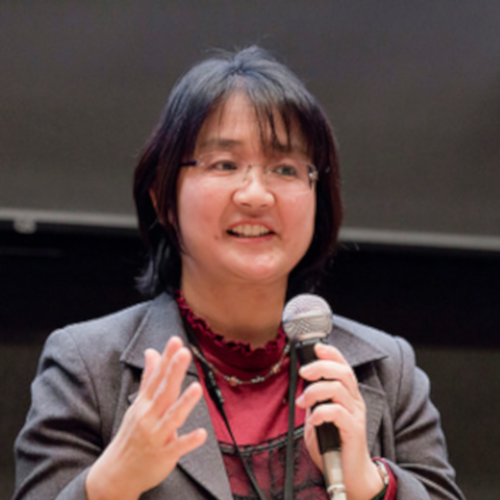
Prof Miho Funamori
Strategy Manager, Associate Professor National Institute of Informatics (Tokyo, Japan)
Miho Funamori is the strategy manager at the Research Center for Open Science and Data Platform, newly set up in April 2017 at the National Institute of Informatics in Japan. She engages in policy analysis for higher education and scholarly communication and gives advice on strategic decisions within NII and beyond. At the same time, she coordinates international and domestic linkages related to research data management. Miho previously worked for 10 years at the headquarters of the University of Tokyo. Based on that experience, she specializes in international higher education policy and university management, and is knowledgeable in the higher education sphere domestically and internationally. She has served on the Board of Directors of FORCE11 since 2019—a community to discuss the future of research communications and e-Scholarship. Prior to joining academia, Miho worked at the Office for International Cooperation, Ministry of Education, Culture, Sports, Science and Technology (MEXT) and the Science and Technology Unit, Mitsubishi Research Institute.
All OAI12 Sessions by Prof Miho Funamori
Is inclusiveness in scholcom really beneficial for scholarship?
Talking about diversity and inclusion, we often take for granted that it benefits everyone and that it is a goal to be pursued for the sake of equality and innovation. However, there are cases where inclusion, in fact, can harm local scholarship. For instance, being included in global scholcomm assumes working on research topics that are interesting and relevant to the global audience. This presumption can undermine local scholarship focused on domestic issues such as national history, literature, local economy, legal framework, and other social issues. Since many countries put it on their agenda to compete globally and achieve high world university rankings, their researchers are sometimes forced to change their research topics to be able to publish in global and high-impact journals if they want to sustain their academic career. Thus, it can be said that the pursuit towards inclusive scholcom largely distorts the scholarship landscape, ending up in research detached from local interests. But shouldn’t research also serve local interests, especially if it is publicly funded? This presentation is based on discussions and confrontations that occurred at forming the internationalization of the University of Tokyo.
Slides available here: https://zenodo.org/record/5497825